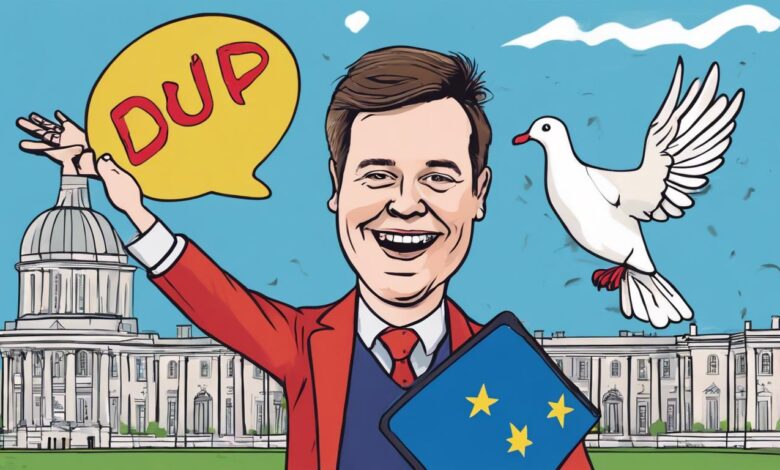DUP faces leadership crisis amid allegations against former leader

The Democratic Unionist Party (DUP) grapples with a significant leadership crisis following the resignation of Sir Jeffrey Donaldson over historical sex offense allegations. With Northern Ireland on the brink of a general election, the party’s interim leader, Gavin Robinson, faces the challenge of uniting a divided party and navigating through political instability.
In recent developments within Northern Ireland’s political landscape, the resignation of Sir Jeffrey Donaldson as the leader of the Democratic Unionist Party (DUP) has caused significant turmoil, particularly with historical sex offense allegations cited as the reason for his departure. This upheaval comes at a critical juncture, as Northern Ireland faces the looming prospect of a general election. Following his resignation, the party appointed Gavin Robinson as the interim leader, who is now tasked with uniting a factionalized party already fragmented by its stance on Brexit and its diminishing influence in UK politics post the hard Brexit negotiations.
The DUP, once a central force in advocating for the unionist cause, has seen its standing erode, grappling with internal divisions and the challenge of appealing to moderate unionist voters amid Brexit’s aftermath. The allegations against Donaldson and subsequent leadership changes have raised concerns about the party’s future and its role in the upcoming election, where it faces stiff competition, notably from Sinn Féin.
Amidst this political instability, Northern Ireland’s First Minister, Michelle O’Neill, has sought to reassure the public and political stakeholders that the region’s power-sharing agreement remains intact. O’Neill has emphasized the need for unity and effective leadership across all political parties within the devolved administration to navigate through these challenging times. The consensus among party leaders in Belfast, as highlighted by O’Neill, indicates a collective determination to maintain the stability of the power-sharing institutions and continue delivering on public commitments, despite the DUP’s leadership crisis.
As the DUP navigates its internal challenges under the interim leadership of Gavin Robinson, the wider political implications of its recent turmoil are yet to unfold. How the party addresses its internal strife and positions itself in the forthcoming general election could significantly influence Northern Ireland’s political dynamics and the future trajectory of unionism in the region.








